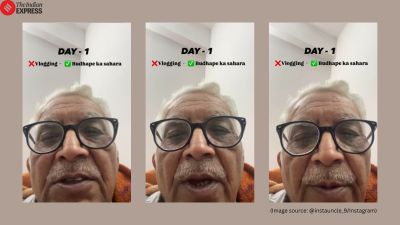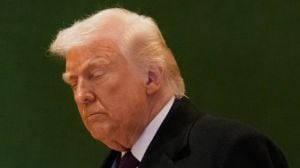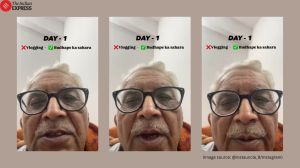Pots judging kettles
The international pressure begins to build up on India and Pakistan in forums as wide-ranging as the UN Security Council, the Conference on ...

The international pressure begins to build up on India and Pakistan in forums as wide-ranging as the UN Security Council, the Conference on Disarmament in Geneva and the forthcoming G-8 meeting in London. After its spectacular failure to detect India8217;s nuclear tests and prevent Pakistan8217;s, the US has obviously concluded that, with no leg of its own to stand upon, an appeal to the world community will serve it well. America-watchers may be forgiven for wondering where this American respect for multilateralism vanishes when it comes to American interests. An outstanding example is its current threat to disobey a World Trade Organisation ruling against America barring imports of shrimp caught without turtle-extruding devices. Still, the broadening of pressure on the nuclear issue is cause for concern. America and those who flourish under its nuclear umbrella have no business to tell anyone how to mind their security or appoint themselves guardians of the world8217;s security. But that cannot be said of countrieswhich have no nuclear weapons, have carried out no tests and have acceded to the non-proliferation regime. They have a right to answers.
So India should answer them. It is right to dispatch Brajesh Mishra to meet French leaders, to start with a P-5 power which has desisted from a hypocritical and moralising stance. Similar efforts are in the offing in the G-8 as well, apart from engaging with those members of the P-5 who show some understanding of India8217;s position. But India8217;s diplomatic effort henceforth will have to become much more widely focused as more countries are sought to be brought into the effort to get it to accede to the CTBT and other non-proliferation regimes. The UN, whose Secretary-General was the first person of international standing to knock the nuclear club on India8217;s tests, is the obvious forum. There is already in the membership of the UN8217;s General Assembly some understanding of India8217;s compulsions. But India needs to work on the instinctive if tacit sympathy of UN members for theview that the nuclear haves have no right to preserve their exclusive status in perpetuity. Above all, Indian diplomacy has to ensure that world concern is fairly apportioned and the real villains identified. It needs to inform the world that though its testing was significantly prompted by the Chinese nuclear support to Pakistan8217;s nuclear programme, the farce is in progress of American hotline consultations with the Chinese leadership on India and Pakistan8217;s tests. So the culprit which for years escaped American sanctions, bar once, for supplying nuclear technology and missiles to Pakistan will now sit in judgment over the country its actions threatened, and of the country whose nuclear programme would not exist but for China! Bill Clinton has taken a well-deserved beating at home on his China policy as a result of India8217;s tests and the campaign finance scandal. India needs to publicise this through its diplomatic efforts at the same time as making the conciliatory gestures that it already is doing on anegotiated signing of the CTBT. As for America, it plays on a weak wicket. An unravelling of the CTBT will spell sure disaster for Clinton8217;s second term. He needs Indian cooperation as much as India needs world understanding.
- 01
- 02
- 03
- 04
- 05






























